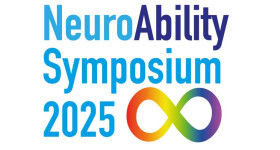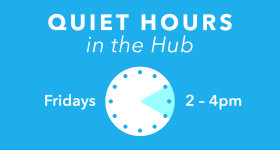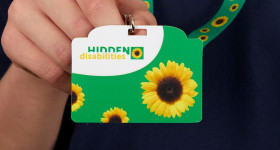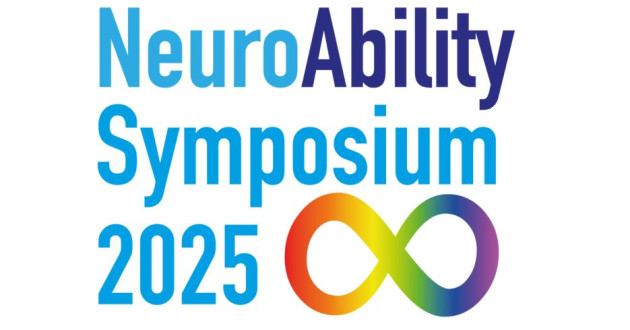Welcome to Neurodiversity
Otago Polytechnic’s Neurodiversity Community provides an opportunity to share resources, make connections with other kaimahi who identify as neurodivergent, and provides resources for those who want to know more about neurodiversity.
As a community we want all of us to develop a better understanding of neurodiversity and how to work with and support different and diverse groups of kaimahi and ākonga.
We believe that Neurodiversity brings amazing strengths, and we can all show respect through our awareness, understanding and acceptance. To support individuals and whānau we all need to have a better understanding of neurodiversity and reflect on what it means for our practice.
We know that many people who identify as neurodiverse experience barriers due to misunderstandings, complexities around diagnosis and these are lifelong.
What is Neurodiversity?
Neurodiversity describes the idea that people experience and interact with the world around them in many different ways; there is no one "right" way of thinking, learning, and behaving, and differences are not viewed as deficits.
The neurodiversity movement emerged during the 1990s, aiming to increase acceptance and inclusion of all people while embracing neurological differences. Online platforms provided spaces for more and more autistic people to be able to connect and form a self-advocacy movement. At the same time, Judy Singer, an Australian sociologist, coined the term neurodiversity to promote equality and inclusion of "neurological minorities." While it is primarily a social justice movement, neurodiversity research and education is increasingly important in informing how we all view and work with individuals strengths and challenges, with different disabilities and neurological conditions.
Judy Singer (2013) refined neurodiversity to describe humans as presenting across a spectrum of neuro-abilities - natural to expect the way humans’ minds work to be diverse and full of variation across the human population.
While neurological variations can sometimes make it challenging to communicate, express ourselves and interact with others, they also enable strengths and capabilities such as being creative and innovative and having exceptional conceptual and analytical skills.
Words matter in neurodiversity
Neurodiversity requires inclusive, non-judgmental language. While many disability advocacy organisations prefer person-first language ("a person with autism," "a person with down syndrome"), some research has found that the majority of the autistic community prefers identity-first language ("an autistic person"). Just like with gender, we need to respect someone’s chosen identity, and it is best to ask directly about a person’s preferred language, and how they want to be addressed. Knowledge about neurodiversity and respectful language is also important.
The neurodiversity view is also personal. Being neurodivergent can help shape identity and how people see themselves and their value in the world. Neurodivergent people experience, interact with, and interpret the world in unique ways. That can sometimes create challenges and can lead to creative problem-solving and amazing new ideas — things that benefit everyone. Simply put, neurodiversity is a variation of the human brain.
Technical terms for neurodiversity are:
- Neurodivergence - The individual expression of neurodiversity.
- Neurotypical (NT) – The term originated in the autistic community, as a way to refer to non-autistic people, and is used to describe a person whose neurological development and state are typical, conforming to what most people would perceive as normal. People whose neurological development is atypical are referred to as "neurodivergent".
- Neurodivergent (ND) – Is a group of individuals who identify as neurodiverse. Neurodivergent people experience, interact with, and interpret the world in unique ways.
- Kanorau ā-roro is the Te Reo translation of neurodiversity.
The word neurodiversity refers to the diversity of all people. Some neurodivergence is genetic, some developmental, and some may be the result of life events/injury. Neurodiverse expressions include, Dyslexia, Dysgraphia, Dyscalculia, Attention Deficit Hyperactivity Disorder (ADHD), Attention Deficit Disorder (ADD), Autism and Tourette’s.
Dyslexia-Friendly quality Mark
Otago Polytechnic I Te Pūkenga has been awarded the Dyslexia-Friendly Quality Mark (DFQM) for our Student Success, Business School, Foundation, and Design Communication and Culture areas. The DFQM is an initiative to help neurodiverse ākonga know that we provide a safe place for them and that we understand and meet their needs.
Dyslexia is characterised by an unexpected difficulty in reading. It occurs in otherwise intelligent people who hold the necessary attributes for normal development in reading acquisition.
The DFQM was developed by Ako Aotearoa and recognises organisations that take a strategic approach to creating an inclusive environment for ākonga with dyslexia. This initiative will increase inclusivity for all with dyslexia and promote an educational experience with appropriate support measures during their learning journey.
Achieving this quality mark promotes best practices and not only builds kaiako kaimahi capability, but most of all, ensures that our current and potential ākonga with dyslexia are fully supported in their learning journey and have every opportunity to thrive. The DFQM provides an opportunity to be recognised as taking extensive steps to establish OP as a dyslexia-friendly organisation. This benefits ākonga with dyslexia and other literacy difficulties, upskills kaiako kaimahi, and promotes organisational change. Furthermore, it provides an opportunity to make a meaningful difference in people’s lives and stimulate positive societal change, through having effective strategies in place to validate individuals in their own right, rather than viewing them as ākonga who struggle.
You may see the following resources around our campus:
Dyslexia Charter which is signed by our Senior Management Team
Dyslexia Friendly Tips Poster for Kaiakao
DFQM Awareness Training (this is a Moodle module)
For further advice and help please visit our friendly Student Success kaimahi or talk to one of the people in the above schools.

News
Call for Voices: NeuroAbility Symposium 2025
Published on 20 March 2025
The NeuroAbility Symposium 2025 will be held at Otago Polytechnic / Te Kura Matatini ki Otago, Dunedin, New Zealand, September 25th and 26th, with a focus on Kanorau ā-roro solutio


News
Quiet hours in the Hub
Published on 25 November 2024
Every Friday between 2pm and 4pm, noise and light will be reduced in the Hub for a sensory friendly experience.


News
Neurodiversity hui - Thursday 21 November
Published on 12 November 2024
Student Success will be sharing initiatives for supporting neurodivergent learners


News
Low sensory and quiet hours around Dunedin
Published on 09 April 2024
If you prefer a quieter, calmer environment, here is a list of sensory-friendly hours at different businesses around Dunedin.


